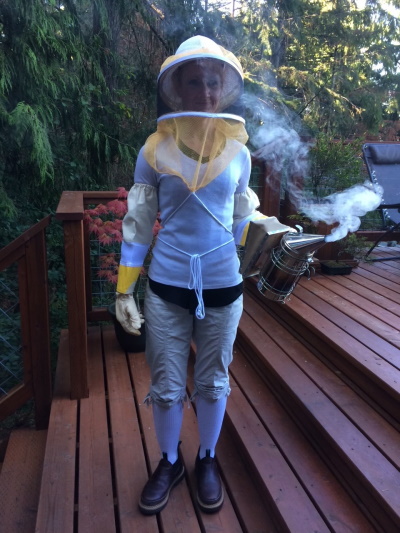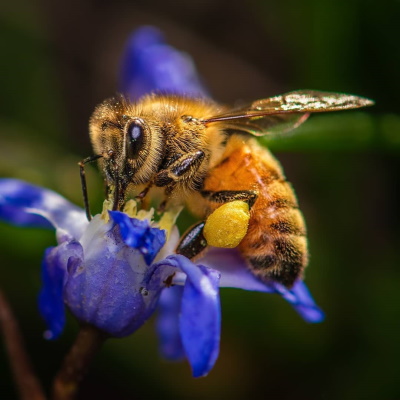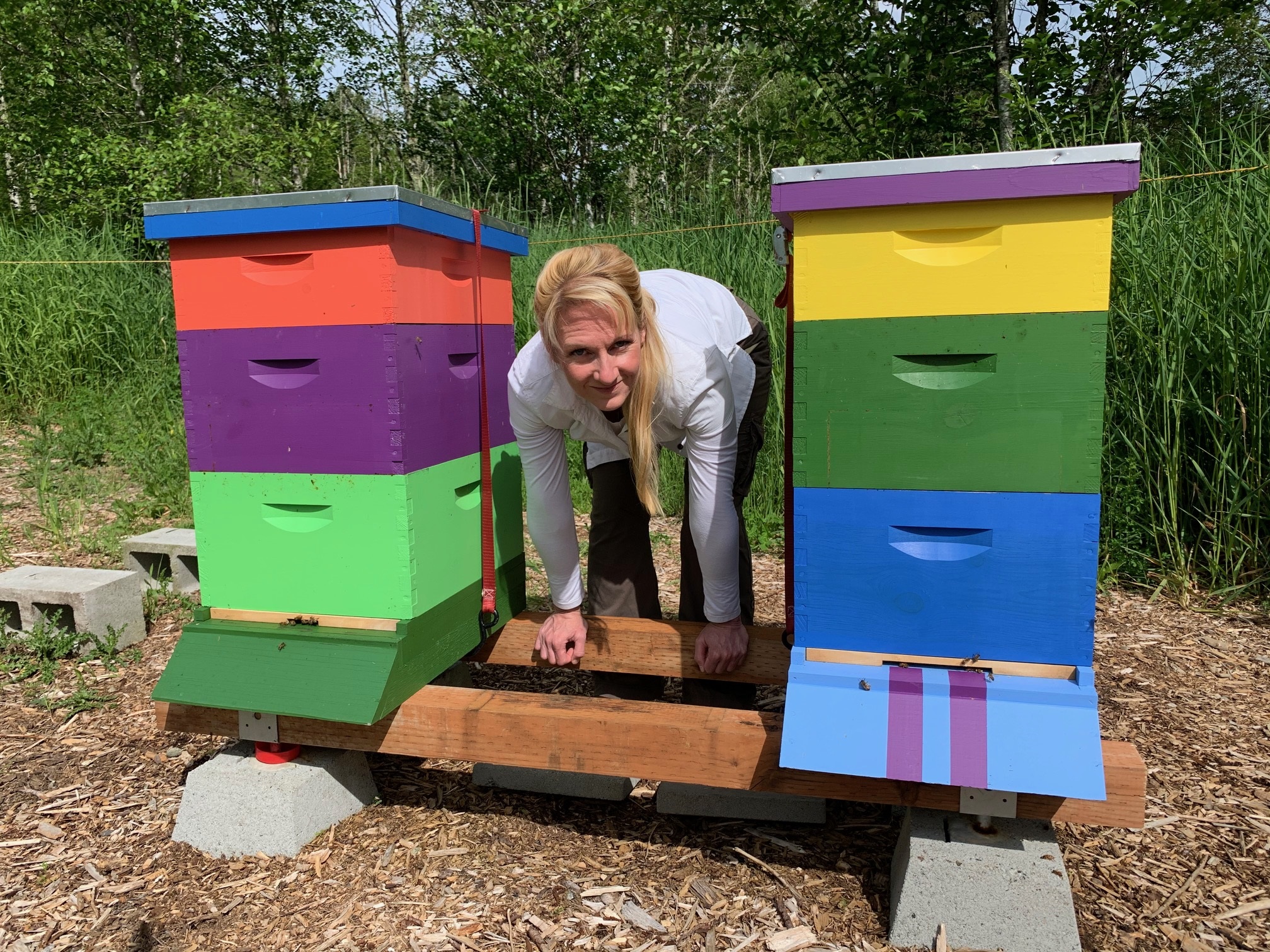WOW first offered a 4-hour introductory class at its fall weekend workshop in 2016 and I signed up to take this hands-on engaging course. Earlier that spring, my husband (who is the policy advisor for the state beekeepers association) had decided to get his first package of bees and I was soon fascinated. When I would sit next to our hive’s front door and peacefully watch all the foragers come and go, working together for the greater good of the colony, I knew I wanted to have more of this in my life.

The WOW course gave me a very thorough base of information and resources for getting started. We were introduced to all the basic hive equipment, why beekeeping is important to us and our environment, the beeswax and honey rewards, and the bee veil as we were all able to inspect a few frames of a live hive! One of the main key points I picked up on that day, was just how important it is to have a bee mentor. I have since joined my local bee club and have taken the 3-month Intro to Beekeeping course taught online by the University of Montana.
My husband and I started our first hive in our backyard where we live in Bellingham. We had purchased a spring package of Carniolan (known for being very gentle) honey bees through our local bee club president and sourced our original hive box from Mann-Lake (a great catalogue full of beginner equipment.) This hive quickly grew into two hives and so we decided to move our small little apiary near the community garden in our HOA, just a couple miles from our house. We visit the apiary almost daily to conduct any needed hive maintenance, check for pests, but more than anything…. lift our spirits. The indescribable sweet smell, inspecting the different colors of pollen the bees bring back from various flowers and trees, the soothing buzz that enhances all the senses, and the calming and almost meditative feel of watching thousands of bees in flight is like a therapy session.

I have a tendency to anthropomorphize my bees, which is something I will always need to work on. I understand the girls are programmed to work together, selfless, and always oriented toward protecting the colony. This is a message I am daily trying to convey in my work life to others, so when I work with the bees I guess I am waiting for them to signal me on how to get people to follow their example. I always leave the hive with a sense of hope.
Sometimes I do feel overwhelmed by the thought of trying to understand and be helpful to an entirely different species, but I am the kind of person who is fueled by a challenge and wanting to always learn more. I must now have over 2-dozen or more beekeeping books that have been recently gifted to me by friends or family, but the top three that I would recommend to anyone interested in starting their own path to becoming a beekeeper are the following: 1) Confessions of a Bad Beekeeper by Bill Turnbull, as it just very funny, humbling, and gives you a good overview of how to learn from other’s mistakes. 2)The University of Montana suggested text book called Storey’s Guide to Beekeeping, and 3) Robbing the Bees by Holley Bishop, a good story combined with natural and social history.
Post Covid, I look forward to being able to share with my WOW sisters, all I have learned over the past few years about honeybees and that there is a BIG difference between being a bee “haver” (one who owns bees), versus becoming a bee “keeper” (one who gives care and attention).
“To Bee” or “Not To Bee” is the big life question….

